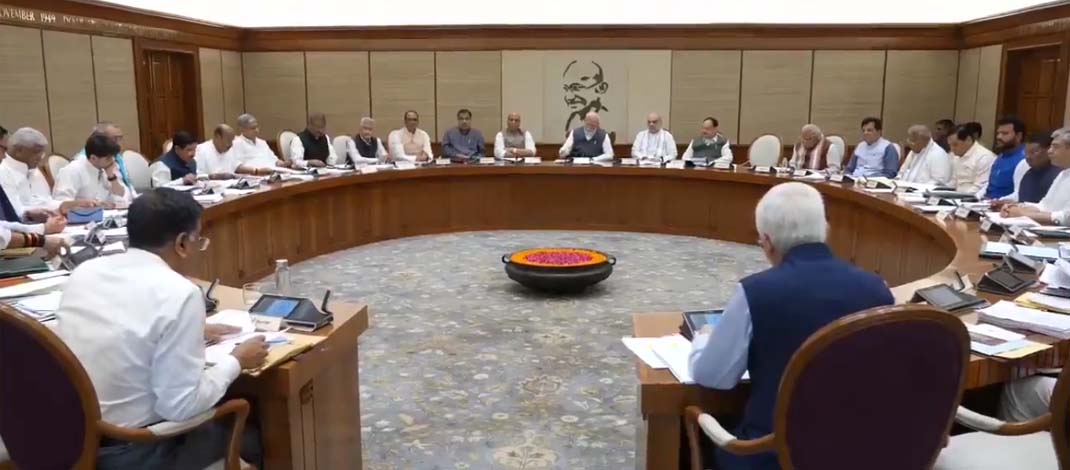- Courses
- GS Full Course 1 Year
- GS Full Course 2 Year
- GS Full Course 3 Year
- GS Full Course Till Selection
- Online Program
- GS Recorded Course
- NCERT (Recorded 500+ Hours)
- Polity Recorded Course
- Geography Recorded Course
- Economy Recorded Course
- AMAC Recorded Course
- Modern India, Post Independence & World History
- Environment Recoded Course
- Governance Recoded Course
- Science & Tech. Recoded Course
- International Relations and Internal Security Recorded Course
- Disaster Management Module Course
- Ethics Recoded Course
- Essay Recoded Course
- Current Affairs Recoded Course
- CSAT
- 5 LAYERED ARJUNA Mentorship
- Public Administration Optional
- ABOUT US
- OUR TOPPERS
- TEST SERIES
- FREE STUDY MATERIAL
- VIDEOS
- CONTACT US
MODEL CODE OF CONDUCT (MCC)
MODEL CODE OF CONDUCT (MCC)
18-03-2024
- Model Code of Conduct (MCC) is a set of guidelines issued by the Election Commission (EC) of India.
- It regulates the conduct of political parties and candidates during elections.
- The MCC comes into force immediately after the announcement of the election schedule and remains in effect until the results are declared.
- The MCC is designed to ensure free and fair elections by providing a level playing field for all contestants.
- It also prevents misuse of official machinery for electoral gains.
History and Evolution
- Model Codes of Conduct (MCC) have evolved over time, beginning in the 1960s as informal guidelines agreed upon by political parties.
- It was first released in 1971 before the 5th Lok Sabha elections.
- The code is issued before every central and state election and is amended from time to time.
- The broad objectives of the code are to:
- Prevent conflicts between parties.
- Ensure law and order during the election season.
- Its primary objective is to ensure that the ruling party does not misuse the government machinery for its election campaign.
- Parties follow the code in the hope that other parties, especially the ruling party, will do the same, thereby ensuring fairness in elections.
- The success of the Code lies in its restrained nature, which parties find tolerable to follow.
- In 1991, the Election Commission (EC) formally adopted the MCC and has revised and updated it from time to time to address emerging challenges and incorporate new provisions
Key Provisions:
- General Conduct
- Political parties and candidates must refrain from:
- Making personal attacks
- Using foul language
- Engaging in activities that aggravate existing differences or create mutual hatred among communities
- Appeals to caste or communal feelings to secure votes are strictly prohibited
- Meetings and Processions
- Parties and candidates must follow local laws.
- Obtain necessary permission to organize public meetings and processions.
- Notify authorities about the time, place and route of any public gathering.
- Ensure proper arrangements and avoid inconvenience to the general public.
- Polling Day Guidelines
- Campaigning within 100 meters of polling stations is not allowed.
- Parties and candidates are prohibited from:
- distributing liquor
- bribing
- intimidating voters
- Parties and candidates should not:
- transport voters to and from polling stations
- use any vehicle for campaigning without proper permission.
- Government and Public Officials
- Ministers and other government officials have been barred from combining official tours with election campaign work.
- They cannot declare financial grants.
- They cannot lay the foundation stone of projects.
- They cannot promise public works during the MCC period.
- Use of government machinery, vehicles and personnel for election campaigning is strictly prohibited.
- Election Manifestos
- According to the rules incorporated in the MCC in 2019, the election manifesto should not contain anything contrary to the ideals and principles enshrined in the Constitution.
- Parties will also have to justify the promises made in their manifestos.
- Parties will have to indicate the means to meet financial needs.
Enforcement and Penalties
- The MCC is not a statutory document and does not have the force of law.
- Certain violations of the MCC may also be considered offenses under the Indian Penal Code (IPC) and the Representation of the People Act, 1951.
- These crimes can carry penalties including fines and imprisonment.
- The Election Commission has the power to issue a warning, censure or order withdrawal of recognition of a political party for repeated violations of the MCC.
- In case of individual candidates, the Election Commission may issue a show cause notice, register an FIR or even order cancellation of their candidature.
Notable Instances and Controversies
Over the years, there have been several instances of MCC violations by political parties and candidates. Some notable cases include:
- The Election Commission had issued a notice to Prime Minister Narendra Modi regarding his comments about former Prime Minister Rajiv Gandhi in the 2019 Lok Sabha elections.
- During the 2014 Lok Sabha elections, the Election Commission nominated the then Chief Minister of Tamil Nadu, J. It was ordered to remove the hoardings and hoardings carrying Jayalalitha's photo, considering them a violation of the MCC.
- In 2017, the Election Commission censured Delhi Chief Minister Arvind Kejriwal for his remarks about bribery during the Goa Assembly elections.
Criticism and Debate
- MCC has been successful in ensuring level playing field during elections.
- The MCC has faced criticism for not adequately addressing issues such as paid news, fake news and social media campaigns.
- The provisions of the MCC are not comprehensive enough.
- The MCC lacks statutory backing, which limits its enforceability and results in selective implementation.
- There have been demands to give legal status to MCC to strengthen its effectiveness and ensure uniform application.


